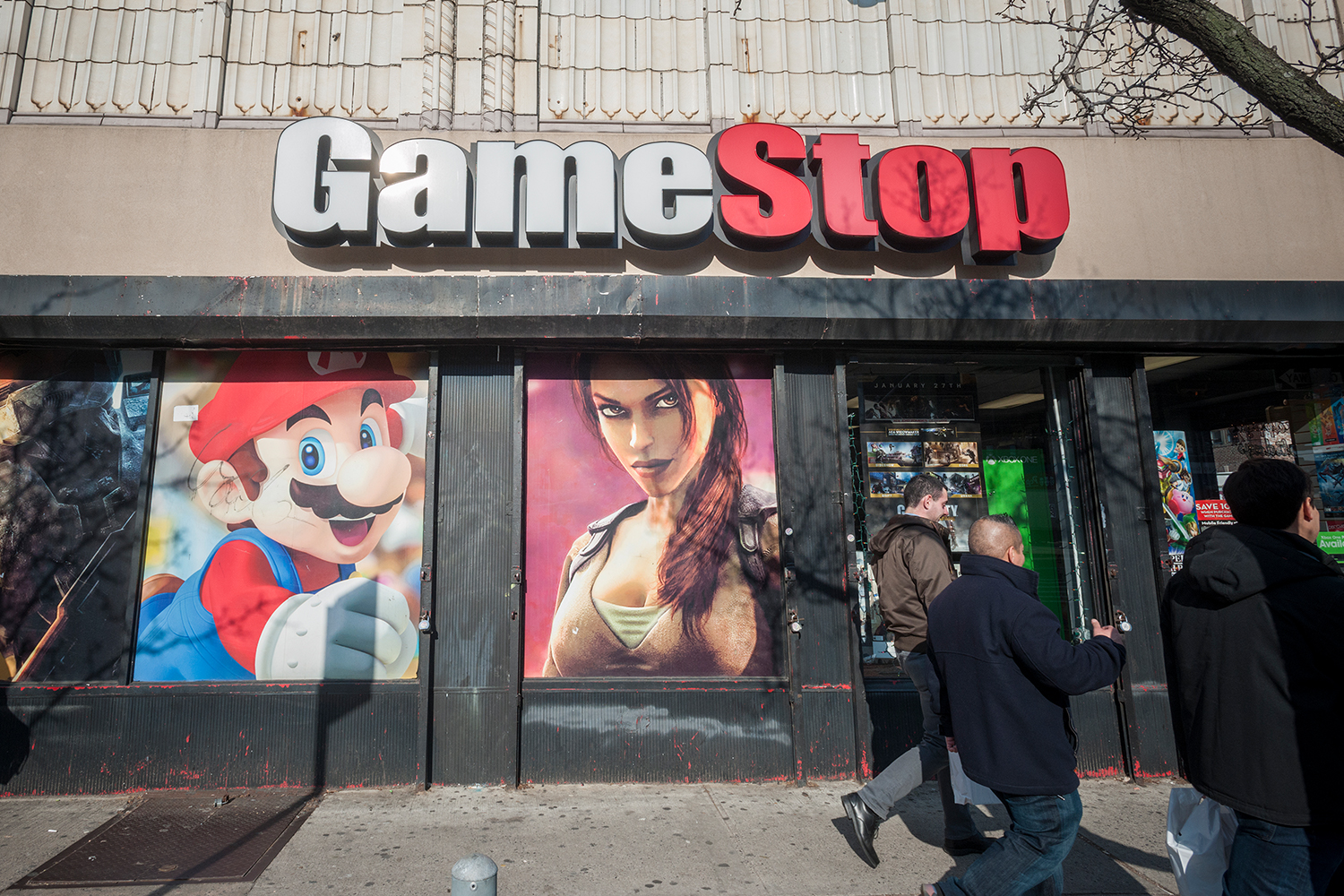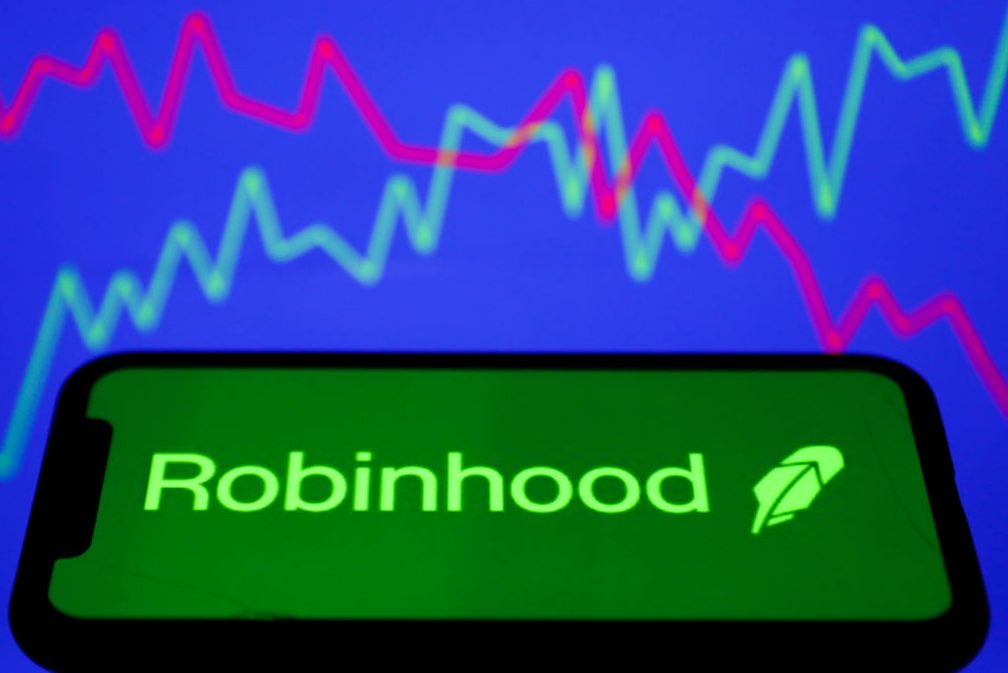In the offices of the World Wide Robin Hood Society, located (where else?) in Nottinghamshire, there is a list attached to the wall known as the “Usual Suspects”: an ongoing compendium of 25 possible candidates of different incarnations throughout history of the mythical hero.
“I suppose we’ll make that 26 now,” the group’s chairman, Bob White, jokes. “He has a habit of appearing in new guises. Perhaps this is the latest!”
The amiable 77-year-old is, of course, referring to the Robinhood trading app, which over the past week caused outrage over accusations that they were favoring the interests of hedge-fund investments in the GameStop stock affair.
The irony of the situation has not been lost, considering Robin Hood is famously believed to have “stolen from the rich to give to the poor.” But for Bob and his team, the confusion has led to an especially busy week at the office, with legions of Twitter users mistaking the U.K.-based group for the app. An additional 63,000 users followed the group over the past weekend, a remarkable surprise for the small organization, who task themselves with being an “open and inclusive resource” on the mythical figure.
Bob first learned about the mixup while at his Nottinghamshire home: “We were sitting down having a cup of tea and chatting, and then my daughter asked, ‘What’s that noise?’ It was my phone pinging off with messages.” When Bob saw the Twitter notifications, he was surprised by how many people had tweeted at the organization by mistake. At first, these were confusing, angry responses, “I rang a colleague and he told me it had gotten mad. People just going off about the app, on how we weren’t ‘supporting small investors.’”
In response to the barrage of misguided vitriol, the organization decided to set the record straight, reminding new followers that they were, in fact, a group dedicated to the mythical English outlaw (who may or may not have worn green tights) and not a controversial day-trading application. They even humorously followed with a tweet of a medieval torture device with the caption: “To be clear, this is the closest we’ve come to selling stocks!”
It’s typical of Bob’s good, easy humor. For him and his team, any publicity is good publicity; particularly if it invites more people to join in the conversation. “Once it all calmed down, people wrote in with emails telling me how they loved Robin Hood growing up, or how they wanted to be Maid Marion as a child,” he adds. “The incident has sparked their memories of him and what he stands for, so as far as we’re considered that’s a good thing.”

As well as interest on social media, Bob’s new book has received a sharp spike in interest, he tells me, selling hundreds of copies over the weekend alone (hopefully not with folks seeking trader advice). He admits that he planned to leave the group this year, but has been “pulled back” thanks to the recent events. The tech-savvy near-octogenarian is now even in the process of progressing their social media plan.
I was curious to find out Bob and his team’s stance on the whole affair, considering how relevant the story is to the character’s rich-robbing habits. He admits that he hasn’t looked too deeply into it, on account of how busy their work has been, though he says it’s not the first time Robin Hood’s name has been used out of context (“there was a Robin Hood tax a few years ago …”) and implies it won’t be the last (“… and yet, whenever the name pops up, it sparks sudden interest in what we do”). He admits it’s not the name he would’ve picked for a trading app, “I don’t know too much. But from what I’ve heard, they don’t share Robin Hood’s principles,” Bob reflects, “I reckon that goes for the 99.9% who are part of our group.”
Then again, the true history of Robin Hood may not be as goodie-two-tunics as Disney or Bryan Adams would have you believe. In fact, if some scholars are right, the app might have more in common with an alternative theory of Robin Hood’s identity. “It’s true there’s possibly a much darker side to the story,” he notes, having recently researched these theories for his new book Robin Hood: the Legacy of a Folk Hero. “It’s obviously up for debate, but the real Robin Hood may have been a group of thieves, or braggarts, who stole from the rich, and not necessarily shared with the poor. If you follow the character, he always made use of whatever opportunity presented itself.” In that respect, he says, the app might not have been so far off with their choice of name. “Sometimes the fiction outlives the facts.”
The app hasn’t yet contacted the World Wide Robin Hood Society. But Bob has been communicating with the charitable Robin Hood Foundation in New York City, who have been experiencing similar newfound interest. It’s positive, in a way, that the app’s greedy behavior might inadvertently have led to fundraising, or support for small groups like the WWRHS.
Bob’s passion for the Robin Hood myth is an unexpectedly nice escape from my day. He shares small, rather interesting facts throughout, like: Did you know a real Sheriff of Nottingham is elected once a year? “He, or she, probably would’ve thrown them [Robinhood, the app] in jail,” Bob jokes. And there are odd anecdotes on how Steve Jobs and Stan Lee were inspired by the hero in their careers. “His name is a byword for justice. That’s why it lives on today; even with mobile apps. No matter who you are, you can apply his principles to your own life or work.”
As soon as our chat finishes, I’m curious enough to Google Robin Hood, the hero (I have nostalgic flashes from the Disney cartoon in my head). But thanks to the power of SEO, it’s the app that keeps popping up. I’m guessing that, like the Twitter users who remain as followers of the group, or those who have emailed him on a whim with their stories, you come for Robinhood but stay for Robin Hood. Because in 2021, knowing an organization like this exists provides a kind of small, harmless comfort. It’s an escape for me, but for Bob, it’s just a day in the life of a chairman, making sure the legend doesn’t die.
“After this,” he says excitedly, giving me a preview of his next call, “it’s the Wall Street Journal!”
This article was featured in the InsideHook newsletter. Sign up now.





















